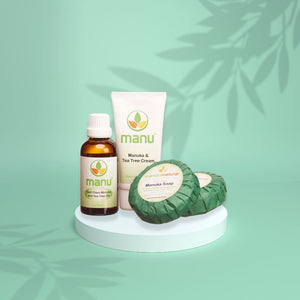
With this dog breath spray, staying indoors is easier
Dental problems in dogs are pervasive, and many owners are unaware of how much they affect the overall health of their pets.
Dog dental care, no matter how silly and complicated it may seem, is quite simple if you follow some make sense info.
Let’s start with why a dog would need a dog breath spray anyway. If everything is ok with the teeth (and often it’s not), you may want to address a question of food.
Vets recommend kibble instead of raw or even soft food
According to VCA Animal Hospitals, 80% of dogs older than three years have dental disease.
“Dental disease is probably one of the most common things I diagnose and comment on in routine wellness exams,” says Jonathan Block, DVM, owner of West Delray Veterinary clinic in Delray Beach, Florida. “Almost every single dog has some dental tartar.”
And where there’s tartar, there can be periodontal disease, which can lead to many other health issues.
Periodontal disease is initiated by a thing called plaque. It is a biofilm made up almost entirely of oral bacteria. And calculus (or tartar) is a plaque that has secondarily become calcified by minerals in saliva.
In short, bad news for any teeth.
Plaque may contain up to 100,000,000,000 bacteria per gram. These bacteria within a biofilm do not act like free-living or “planktonic” bacteria and are 1,500 times more resistant to antibiotics.
Plaque on the surface is known as supragingival plaque.
It likely affects the pathogenicity in the early stages of periodontal disease.
These bacteria in the subgingival plaque secrete toxins as well as metabolic products. They also produce cytotoxins and bacterial endotoxins, which can invade tissues and cause inflammation to the gingival and periodontal tissues.
This inflammation damages the gingival tissues and initially results in gingivitis. Eventually, the inflammation can lead to periodontitis.
In addition to directly stimulating inflammation, the bacteria also brings out an inflammatory response from the dog. In fact, the progression of periodontal disease is determined by the virulence of the bacteria combined with the host response.
In spite of knowing all this, there’s a persistent assumption that can steer people and dogs wrong: kibble will help keep their teeth clean.
WHY THEN ARE VETS RECOMMENDING KIBBLE?
The food designed for dental health is from corporations who pay vets to sell it. Remember how it is with Big Pharma?!
The same story is applied here. And this food is usually made with low-quality ingredients.
Let’s think about it for a sec!
Kibble is cereal. And is full of starch. Smaller cereal bits can get stuck between teeth when broken down after chewing, promoting plaque build-up.
When they get trapped between the teeth, the sugars attack the teeth. Yes, although crunchy, regular kibble dog food sticks to a dog’s teeth like no other food.
Saying regular kibble food cleans dogs’ teeth is like saying Cheerios clean your teeth.
The math, and the myth, don’t add up: remember, 80% of dogs have oral disease by age three.
Wild carnivores chew on bones, tendons, cartilage, and ligaments that help strip the teeth of debris. So, it seems to make sense that the abrasive nature of kibble may provide a similar dental benefit, but this is unproven.
Many companies use attractive packaging as a lure to attract customers and often hide a low-quality product. Likewise, many implement a strategy of aggressive advertising and presence on the market, although they cannot boast of excessive quality.
This brings good results in sales because most people make their purchase decision based on the product’s pictures, packaging, availability, and price.
They don’t overthink the actual quality and composition of food. But, you can find most information about the quality of food precisely from the information provided on the packaging, which must be accurate and correct by law.
With that being said…
After a dog eats any food, tiny bits of the food are left behind on the teeth. These food particles mix with bacteria in the mouth, gathering along the gum line. If the teeth are not brushed soon, the food residue forms a soft film called plaque.
You can brush plaque away, but only if you get to it before it hardens into tartar, which is calcified and very hard. When tartar develops beneath the gum line, it causes gingivitis (bleeding and inflammation of the gums).
If allowed to progress, gingivitis can cause periodontitis.
Fresh, whole foods are also less inclined to stick to teeth the way hard, crunchy kibble does.
Improving their overall systemic health with a whole-food diet probably improves their microflora. It also promotes a healthier immune system, allowing them to ward off things like dental infections and tolerate them better.
How can I get rid of my dog’s bad breath then?
One way to improve your dog’s dental health is either through regular maintenance such as brushing or using a dog breath spray that has been tried and tested with clinical results.
What about raw food?
The benefits of raw on dental health are purely anecdotal. However, people see results in their animals (chewing raw bones, for example, may help remove plaque from the teeth and thus decrease tartar build-up).
Only a few foods on the market have been proven in clinical studies to reduce incidents of periodontal disease in dogs and cats.
That and dog breath spray.
Your best bet is feeding whatever you are most comfortable with and incorporating brushing into your routine! It seems silly, but it is the only proper way to have a tangible impact on your pet’s dental health. The veterinary saying is “good to chew, better to rinse, best to brush.”
However, if you listen to someone else besides vets, you can try “best to brush and spray.”
Or, if you don’t have the time, just use dog breath spray.
Dog breath spray helps maintain oral hygiene
Regularly using dog mouth spray reduces the risk of oral infections and strengthens your dog’s oral hygiene.
We all know that our pets habitually put things in their mouths. For this reason, maintaining oral hygiene is very important to avoid potential health problems. The active ingredients of dog breath spray kill bacteria, reduce inflammation and regulate acids that cause tooth decay and cavities.
What makes dog breath spray effective?
Dentalflex dental dog spray can help you by preventing the first stages of dental issues, thanks to its ingredients.
And what makes this dog breath spray effective?
Manuka UMF honey reduces inflammation and prevents the development of plaque. The antibacterial properties come from the high concentration of sugars and their osmotic effect on bacterial cells. It contains an enzyme that breaks down glucose (glucose oxidase), releasing hydrogen peroxide (hydrogen), which is a well-known antiseptic.
Propolis has antiviral, antibacterial, and antifungal properties. It primarily helps by stopping the reproduction of bacteria whose toxins promote gingivitis. Also, its anesthetic-like effect prevents painful tooth sensitivity and strengthens the dental cavity.
Cinnamon oil contains compounds with strong antifungal properties to fight oral thrush infection.
Velvet antler is a renowned oriental health tonic produced in New Zealand via a patented bio-active extraction process providing enhanced assimilation of its unique health benefits.
Peppermint flavoring provides a pleasant breath freshening aroma.
In the end …
Is there a pet that doesn’t like to be cuddled?
It is a pet that is in pain.
How to know that your pal has a dental problem?
First, it will avoid being touched on the head.
If you notice that your dog moves its head away when you pet it, especially if you touch its jaw or stroke its muzzle, this is certainly not a sign that they are bothered by the tenderness you are giving them. Instead, something else bothers them – the pain they feel when you touch them.
Gum infection (gingivitis) causes your pet’s gums to become tense, sensitive, swollen, and any pressure on them can cause pain.
Try to examine his gums as gently as possible. If you notice changes on them, you can be sure that your pet is suffering from inflammation.
Please share this with your social media contacts or anyone you think could benefit from manuka honey.
https://www.writersmeadow.com/



Leave a comment